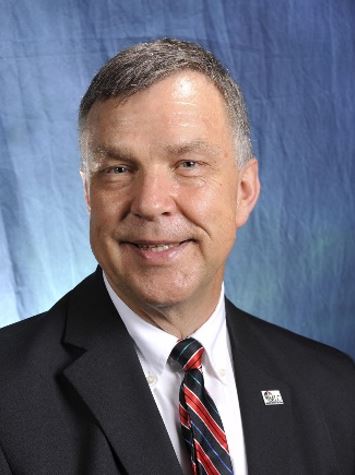President’s Message: A Doubly Positive Narrative
By President Rich Gurgel NWC ’81, WLS ’86

Whether a prospective student enrolls at MLC often boils down to a financial decision. Such financial concerns can overwhelm an otherwise strong inclination to study for ministry.
The #1 concern for prospective college students (and their parents) is the cost of college. Concerns about anticipated educational debt—and the financial aid packages colleges offer to keep debt manageable—are key factors in a student’s college choice.
These upfront concerns about costs are frequently accompanied by a related post-graduation concern. Websites talk about a college’s ROI—its return on investment. What will be the average income for the typical graduate from that college as they enter their vocation? If the ROI appears high, that eases concerns about taking on some degree of debt.
As MLC partners with our synod to recruit future gospel messengers, we have very good news about declining educational debt. What may surprise us is that MLC also has a much stronger ROI narrative than we’ve often shared! Let’s look at both pieces of news.
Positive News, Part 1: MLC Educational Debt Is Coming Down
God has blessed MLC with considerable progress in reducing our graduates’ average educational debt. In May 2019, the average debt for all MLC graduates was $21,077. In May 2022, that average had fallen to $16,937. That means MLC graduates carry about the same average debt as public university graduates. And they carry significantly less average debt than private college graduates.
You can see a compelling narrative begin: As God’s people continue to bring gifts for financial aid, MLC is regaining a competitive advantage! It would be hard to overestimate the impact of this progress for prospective MLC students and their parents!
Positive News, Part 2: WELS Called Worker Compensation Has Gone Up
Is our story as compelling on the ROI side of the equation? Isn’t it a reality that our graduates’ potential income won’t match that of many other vocations?
It’s true that the WELS Compensation Guidelines list no six-figure salaries. But this is also true: We don’t want to lure people to public ministry by waving high salaries before them. The apostle Paul has good reasons for warning us that a spiritual leader should not be “a lover of money” (1 Timothy 3:3). As we serve Jesus under the cross in public ministry, the greatest rewards have nothing to do with the financial bottom line.
Yet even from a purely financial perspective, MLC has a compelling ROI narrative to tell! Sometimes we’ve almost given the impression that those entering public ministry have taken a vow of poverty. They haven’t! Especially in the last 25 years, lay leaders in our synod have led the charge to ensure that called workers receive a livable wage that corresponds favorably to those in similar helping professions. God’s people understand that you don’t muzzle the spiritual ox treading the spiritual grain (1 Corinthians 9:9)!
Why the News Is Sometimes Confusing
Here is where our narrative still gets muddied. Too often people get so fixated on the base salary listed in the WELS salary matrix that they fail to consider significant additional compensation. The WELS base salary has never represented the entire livable wage. Calling bodies also give their called workers additional compensation for housing, by providing either a housing allowance or an actual residence. This is a form of compensation that almost no one else, except active military, enjoys.
Here’s an example. Picture a May 2023 MLC graduate assigned to southeastern Wisconsin. For that graduate, the WELS salary matrix suggests a base salary of $30,987 to $35,635. If the calling body does not provide a house, they would provide a housing allowance of $16,488. That makes the actual salary range for that new WELS teacher $47,475 to $52,123.
How does that compare to the average starting salary for a public school teacher in Wisconsin? 2023 figures were not available at the time of publication, but in 2022, the starting salary range for a new Wisconsin public school teacher was $34,687 to $50,650, with the average teacher earning $41,534. In addition, when compared to other businesses, WELS congregations and schools usually cover much more of the cost of health insurance. That’s additional compensation.
Here’s the takeaway: Our MLC graduates are not compensated as second-class educators.
Let’s Relearn Our Narrative
Yes, there’s much more to the ministry recruitment story, but here’s the financial bottom line to share with those considering ministry: God’s people know how to give generously to support ministerial education. For that reason, student debt is going down. And God’s people know that called workers need to be sufficiently compensated so they can stay focused on ministry. For that reason, compensation has gone up.
We want our prospective students and their parents to hear this news. This is a doubly positive narrative worth telling!





